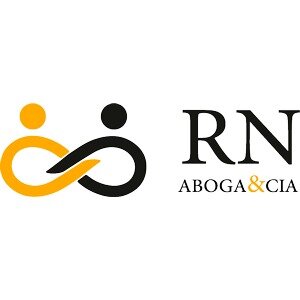Best Project Finance Lawyers in Seville
Share your needs with us, get contacted by law firms.
Free. Takes 2 min.
List of the best lawyers in Seville, Spain
About Project Finance Law in Seville, Spain
Project finance is a specialized area of finance law that focuses on funding long-term infrastructure, industrial projects, and public services based on the projected cash flows of the project, rather than the balance sheets of its sponsors. In Seville, Spain, project finance law involves complex operations for sectors such as energy, transportation, telecommunications, and real estate development. Legal frameworks and contracts in project finance distribute risks, allocate responsibilities, and set repayment conditions. Seville, as a key hub in southern Spain, often sees project financing for renewable energy, road infrastructure, and public-private partnerships, making local expertise essential for successful outcomes.
Why You May Need a Lawyer
Navigating project finance transactions requires specialized legal knowledge due to their complexity and the involvement of multiple parties, including lenders, sponsors, and public authorities. Common situations where you may need legal help include:
- Drafting and negotiating finance agreements, such as loans or bonds
- Structuring public-private partnership (PPP) arrangements with the local government
- Securing and perfecting collateral over project assets
- Complying with national and European Union regulations specific to your sector
- Resolving disputes or unforeseen legal issues during the project lifecycle
- Obtaining permits and licenses from local authorities
- Managing environmental compliance and risk assessments
- Advising on tax structuring and cross-border transactions
In summary, a local project finance lawyer can help protect your interests, guide you through regulatory requirements, and facilitate smoother transactions.
Local Laws Overview
Project finance in Seville operates within Spain's national legal framework, yet is shaped by certain localized and regional aspects. Some important legal factors to consider include:
- Public-Private Partnership (PPP) Laws - Spain encourages private participation in public infrastructure through specific PPP laws. Regional regulations in Andalusia can further impact contract terms and bidding requirements.
- Secured Transactions - Spanish law allows lenders certain security interests over project assets, including mortgages over land and pledges over shares. Perfection and enforcement of these rights depend on registration and notarization in Seville.
- Environmental and Planning Laws - Infrastructure and energy projects must comply with rigorous local environmental assessments and planning approvals set by the Seville City Council and Andalusian authorities.
- Corporate and Tax Law - The structuring of project companies and tax planning are integral, particularly regarding Value Added Tax (VAT), with implications for foreign investors.
- Dispute Resolution - Commercial disputes are typically resolved under Spanish law in local courts, but contracts may provide for arbitration, sometimes seated in Seville or another Spanish city.
Understanding these laws and their practical enforcement locally is vital for developing and financing successful projects in Seville.
Frequently Asked Questions
What is project finance and how does it differ from other types of financing?
Project finance is based on the projected cash flows of the project, not the general assets or creditworthiness of the project sponsors. It typically involves creating a separate legal entity for the project, and lenders have limited or no recourse to the sponsors if the project fails.
What types of projects are commonly financed through project finance in Seville?
Major sectors include renewable energy (solar parks, wind farms), transport infrastructure (roads, bridges), water treatment facilities, and large-scale real estate developments, often involving public-private partnerships.
Do I need to establish a legal entity in Spain for project finance?
Yes, most projects require the incorporation of a special purpose vehicle (SPV) under Spanish law, usually as a limited liability company, to isolate project risks and manage contracts, licenses, and financing.
What security can lenders take under Spanish law?
Lenders can take security interests in project assets, including mortgages over land and buildings, pledges over shares and accounts, and assignment of key contracts, subject to proper registration and notification.
Are there local permits or licenses I need for a project in Seville?
Yes, you will need approvals from various municipal and regional authorities in Seville and the Andalusia region, including planning approvals, environmental impact authorizations, and operational permits before construction or operation.
How are public-private partnerships structured in Seville?
PPP projects involve collaboration between public authorities and private investors, who design, finance, build, and operate assets. The terms are regulated by Spanish and Andalusian law, with strict bidding processes and contractual obligations.
Is foreign investment allowed in project finance projects?
Yes, Spain is open to foreign investment in infrastructure, energy, and other sectors. However, some regulated industries and strategic assets may require special approvals or notifications to the national or local government.
What are the typical steps in closing a project finance deal in Seville?
Key steps include due diligence, structuring the SPV, negotiating and executing finance and project contracts, obtaining permits, financial close, and post-closing compliance monitoring.
How are disputes resolved in project finance contracts?
Contracts may provide for Spanish court jurisdiction or for domestic or international arbitration. Local expertise is crucial for enforcing judgments and navigating Spanish or Andalusian procedural rules.
Are there any incentives or subsidies available for certain projects?
Yes, there are regional and national incentives, especially for renewable energy and infrastructure. These may include grants, feed-in tariffs, or tax benefits, subject to compliance with Spanish and EU regulations.
Additional Resources
To further assist you in project finance matters in Seville, consider the following resources:
- Seville City Council (Ayuntamiento de Sevilla) - information on local permits and development regulations
- Andalusian Agency for Innovation and Development (Agencia IDEA) - support for investment and project financing in Andalusia
- Ministry for the Ecological Transition and the Demographic Challenge (Ministerio para la Transición Ecológica) - guidelines on energy and environmental permits
- Spanish Official Gazette (Boletín Oficial del Estado) - for current laws and regulatory changes
- Spanish Commercial Registries - for information on company registration and legal requirements
- Professional associations, such as the Sevilla Bar Association (Ilustre Colegio de Abogados de Sevilla) - to find qualified legal professionals specializing in project finance
Next Steps
If you believe you need legal advice for a project finance transaction in Seville, consider the following actions:
- Gather preliminary information about your project, including business objectives, involved parties, and possible financing sources
- Identify the location and sector to determine the local permitting and regulatory requirements
- Consult with a qualified project finance lawyer in Seville who has experience in your industry and understands Andalusian and Spanish law
- Prepare to discuss your needs, objectives, and any previous experience with similar projects
- Ask for a clear explanation of fees and services provided
- Stay informed about any legal or regulatory changes that could affect your project
Seeking out professional legal advice early in the process can help avoid costly mistakes, streamline approvals, and protect your interests throughout the life of the project.
Lawzana helps you find the best lawyers and law firms in Seville through a curated and pre-screened list of qualified legal professionals. Our platform offers rankings and detailed profiles of attorneys and law firms, allowing you to compare based on practice areas, including Project Finance, experience, and client feedback.
Each profile includes a description of the firm's areas of practice, client reviews, team members and partners, year of establishment, spoken languages, office locations, contact information, social media presence, and any published articles or resources. Most firms on our platform speak English and are experienced in both local and international legal matters.
Get a quote from top-rated law firms in Seville, Spain — quickly, securely, and without unnecessary hassle.
Disclaimer:
The information provided on this page is for general informational purposes only and does not constitute legal advice. While we strive to ensure the accuracy and relevance of the content, legal information may change over time, and interpretations of the law can vary. You should always consult with a qualified legal professional for advice specific to your situation.
We disclaim all liability for actions taken or not taken based on the content of this page. If you believe any information is incorrect or outdated, please contact us, and we will review and update it where appropriate.














